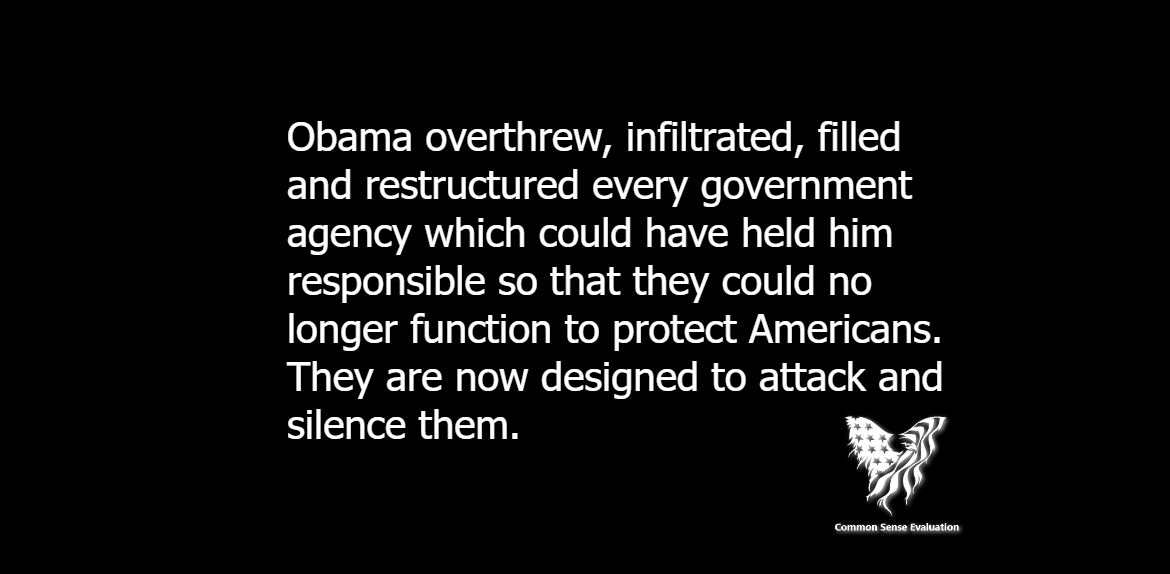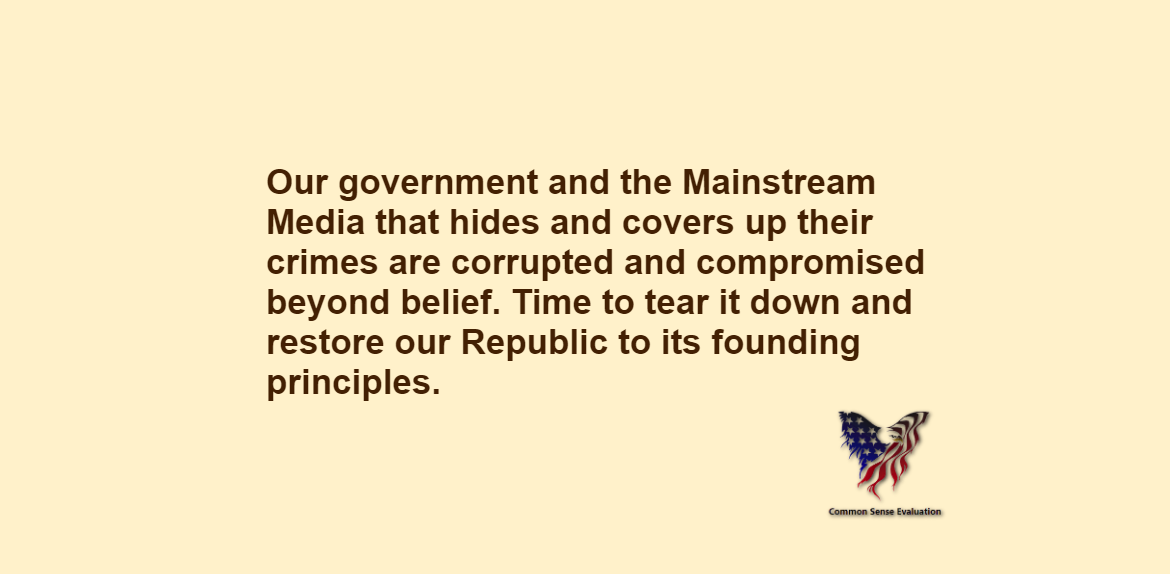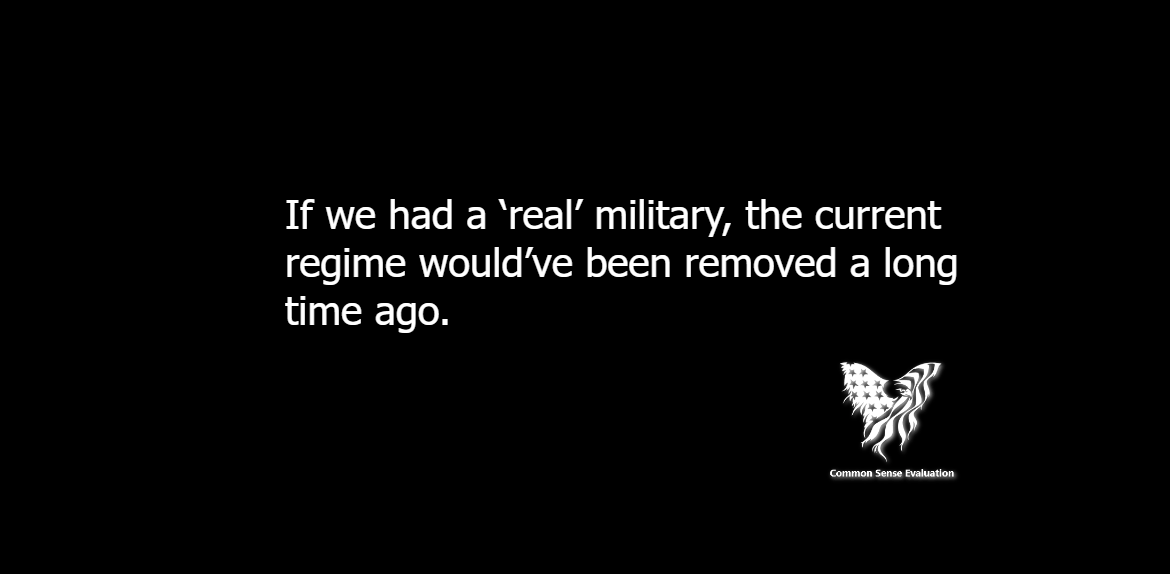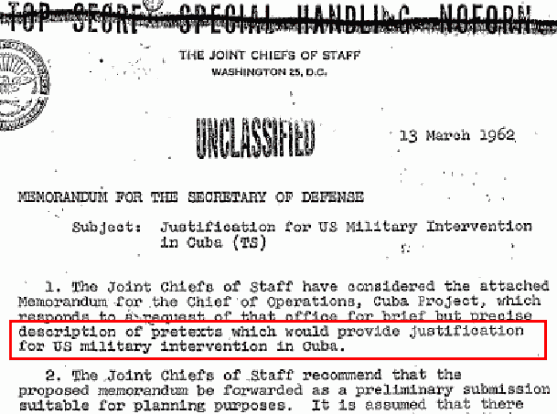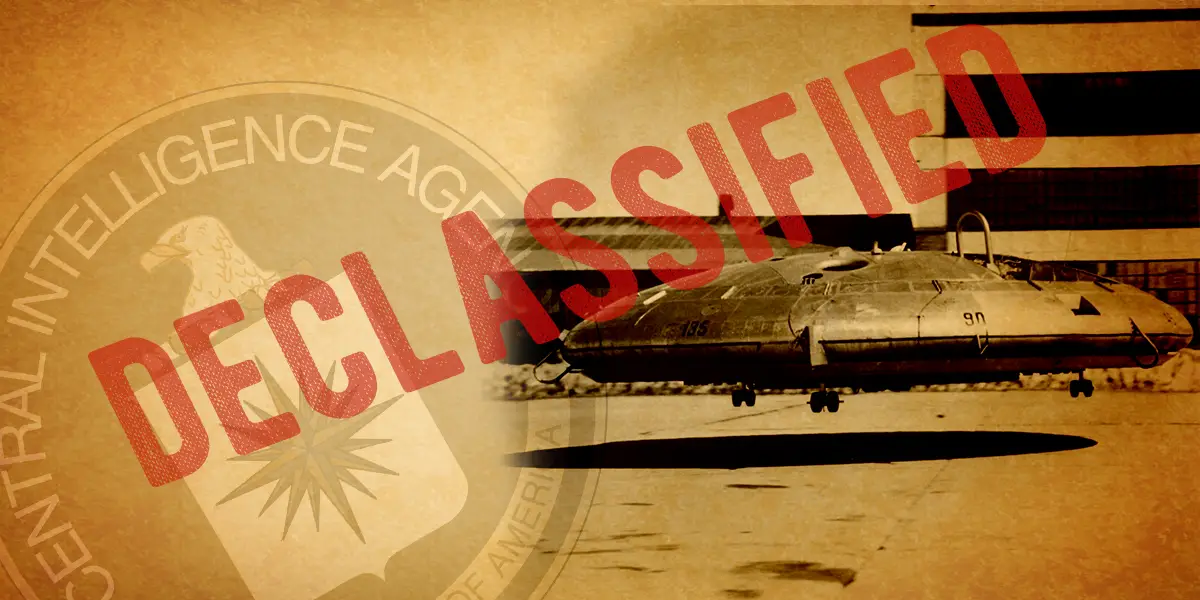Obama overthrew, infiltrated, filled and restructured every government agency which could have held him responsible so that they could no longer function to protect Americans. They are now designed to attack and silence them.
Corrupted and Compromised
A Real Military
Operation Northwoods: Unveiling the Sinister Underbelly of Government Deception
In the annals of covert operations, Operation Northwoods stands as a chilling reminder of the extent to which government agencies can go to manipulate public sentiment and justify military intervention. Proposed in the early 1960s by the U.S. Department of Defense, this top-secret plan aimed to stage false flag terrorist attacks on American soil and blame them on Cuba. While the operation was ultimately rejected by President John F. Kennedy, its existence sheds light on the murky world of intelligence operations and the potential for abuse of power.
The Origins of Operation Northwoods
During the height of the Cold War, the United States and Cuba found themselves embroiled in a bitter political and ideological conflict. The Cuban Revolution led by Fidel Castro in 1959 created tensions between the two nations, with the U.S. government increasingly concerned about the spread of communism in the Western Hemisphere.
In this context, Operation Northwoods was conceived by the Joint Chiefs of Staff, the highest-ranking military officers representing each branch of the U.S. Armed Forces. The operation aimed to create a pretext for military intervention in Cuba, with the ultimate goal of overthrowing Castro’s government.
The Proposed Actions
Operation Northwoods outlined a series of deceptive and provocative actions that would justify U.S. military intervention in Cuba. The plan included acts of terrorism and sabotage to be carried out by covert operatives posing as Cuban agents. Some of the proposed actions were:
- Hijacking commercial airplanes and blaming Cuban forces.
- Sinking a U.S. ship in Cuban waters and blaming it on Cuba.
- Staging a terrorist campaign on American soil and blaming it on Cuban sympathizers.
The intent behind these actions was to manipulate public opinion and create a casus belli for a military invasion of Cuba, effectively rallying support for a war against the Castro regime.
Rejection and Aftermath
Although Operation Northwoods was formally presented to President John F. Kennedy’s administration in 1962, it faced significant opposition. Kennedy and his closest advisers, including Defense Secretary Robert McNamara, were troubled by the extreme measures proposed by the Joint Chiefs of Staff.
Ultimately, President Kennedy rejected Operation Northwoods, considering it morally indefensible and a violation of American values. However, the plan’s existence was declassified decades later, revealing the lengths to which certain elements within the government were willing to go to achieve their geopolitical objectives.
Legacy and Implications
Operation Northwoods serves as a stark reminder of the potential abuses of power within intelligence agencies. While the operation was never implemented, its existence raises questions about the true nature of historical events and the narratives presented to the public.
False flag operations have been employed throughout history, with governments using them to manipulate public opinion and justify military actions. Operation Northwoods stands as an alarming case study, underscoring the importance of critical thinking, transparency, and oversight in matters of national security and foreign policy.
Conclusion
Operation Northwoods stands as a dark and disturbing testament to the potential depths of government deception and manipulation. Its existence reveals a shadowy realm where morality and ethics are sacrificed for the pursuit of geopolitical objectives. While President Kennedy’s rejection of the operation offers a glimmer of hope, it also raises unsettling questions about what other covert plans may have been implemented throughout history without public knowledge.
The legacy of Operation Northwoods serves as a chilling reminder of the fine line between national security and abuse of power. It underscores the need for unwavering vigilance and skepticism, demanding transparency and accountability from those in positions of authority.
As we navigate an increasingly complex world, the specter of Operation Northwoods serves as a haunting reminder that the interests of the few can supersede the rights and well-being of the many. It is incumbent upon us to remain ever watchful, to question the official narratives, and to strive for a society that values truth, integrity, and the protection of individual liberties.
Only by learning from the dark chapters of our history can we hope to build a future where such manipulative and morally bankrupt operations are condemned to remain relics of a bygone era.
Operation Paperclip: The Recruitment of Nazi Scientists after World War II
Operation Paperclip was a secret program conducted by the United States government following World War II to recruit German scientists, engineers, and technicians, including some involved in Nazi Germany’s war effort. The operation aimed to capitalize on the scientific expertise of these individuals, primarily in fields such as aerospace, rocketry, and intelligence gathering. While it undoubtedly contributed to significant advancements in science and technology, Operation Paperclip remains a subject of debate and controversy due to ethical concerns and the questionable pasts of some recruited scientists.
Origins and Objectives
In the closing stages of World War II, the Allies realized the significant scientific advancements made by Germany under the Nazi regime. Fearing that valuable intellectual capital would fall into the hands of the Soviet Union, the United States initiated Operation Paperclip. This operation, which lasted from 1945 to 1959, sought to identify and recruit German scientists, particularly those specializing in rocketry, aerospace, and biological warfare.
The Recruitment Process
Under Operation Paperclip, U.S. military intelligence officers actively scoured Germany for individuals who possessed valuable scientific knowledge. Notable figures such as Wernher von Braun, a renowned rocket scientist, and Arthur Rudolph, a leading engineer, were among those targeted for recruitment. While many of these scientists willingly collaborated with the Americans, others were coerced into cooperation to avoid prosecution for their involvement in war crimes.
Controversial Aspects
The recruitment of German scientists through Operation Paperclip was not without its ethical dilemmas. Many of these scientists had been members of the Nazi Party and had used forced labor during the war. Some had even conducted experiments on concentration camp prisoners. These actions raised significant moral questions about whether their knowledge and expertise should outweigh their crimes.
Public Knowledge and Legacy
Operation Paperclip was shrouded in secrecy for several decades, with the U.S. government denying its existence until the 1970s. The project’s details only became public knowledge through the efforts of investigative journalists and historians. This revelation sparked public debate, criticism, and calls for transparency regarding the recruitment process and the scientists’ wartime activities.
Scientific Advancements and Cold War Competition
Operation Paperclip undeniably played a crucial role in advancing scientific knowledge and technology in the United States. German scientists brought expertise in areas such as rocketry, aircraft design, and guidance systems. This knowledge became vital in the emerging Cold War era, as the United States and the Soviet Union engaged in a race to achieve technological supremacy. The contributions of Operation Paperclip scientists, particularly in the development of the American space program, were substantial.
Ethical Considerations and Historical Perspective
Critics argue that Operation Paperclip compromised the principles of justice and accountability. By recruiting scientists involved in war crimes and overlooking their past actions, the operation raised questions about the United States’ commitment to justice and the integrity of scientific pursuit. However, proponents contend that the operation’s benefits to American scientific advancements and the containment of the Soviet Union justified the compromises made.
Final Thoughts
Operation Paperclip remains a complex and controversial episode in history, characterized by the ethical dilemma of trading justice for scientific and technological progress. While the operation undeniably contributed to significant advancements and bolstered American capabilities during the Cold War, its moral implications continue to be debated. The story of Operation Paperclip serves as a reminder of the delicate balance between scientific progress and the preservation of moral principles in times of conflict.
